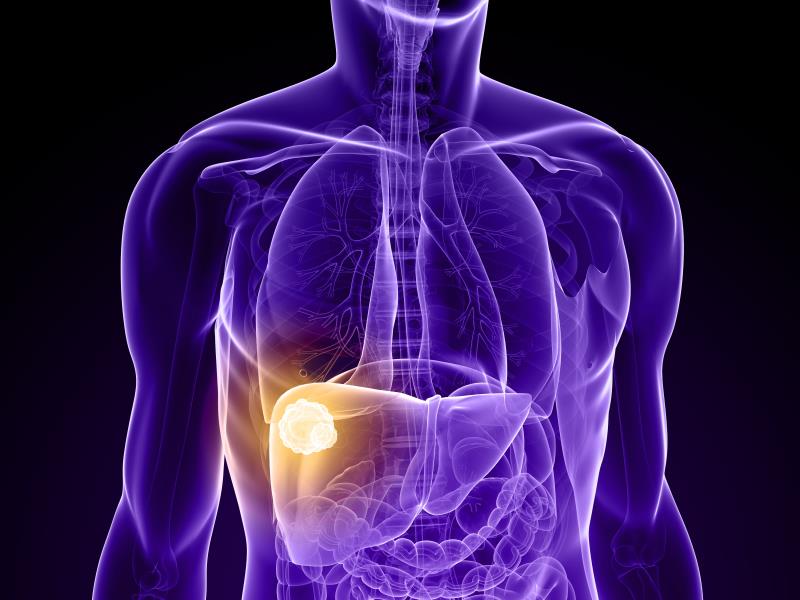
The combination therapy of nivolumab (NIVO) and cabozantinib (CABO) with or without ipilimumab (IPI) demonstrates activity in advanced hepatocellular carcinoma (aHCC), according to the CheckMate 040* study presented at ASCO GI 2020.
This trial involved 71 patients with aHCC who were naive to sorafenib. Participants were randomized in a 1:1 ratio to receive either intravenous NIVO 240 mg every 2 weeks and oral CABO 40 mg once daily with oral IPI 1 mg/kg every 6 weeks (triplet arm; n=35, median age 67.0 years, 85.7 percent male) or without IPI (doublet arm; n=36, median age 64.5 years, 88.9 percent male) and continued treatment until intolerable toxicity or disease progression. [ASCO GI 2020, abstract 478]
As per the investigator’s assessment, patients who received the triplet regimen achieved a higher objective response rate than that of the patients who received the doublet regimen (29 percent vs 19 percent), with 10 and seven patients having a partial response (PR), respectively.
Patients in the triplet arm also showed a slightly higher disease control rate (defined as the total rate of complete response, PR, and stable disease) compared with those in the doublet arm (83 percent vs 75 percent).
In addition, those on the triplet regimen experienced a slightly longer progression-free survival than those on the doublet regimen (median, 6.8 vs 5.4 months).
After 2 years of follow-up, the median overall survival was 21.5 months in the doublet arm and was not reached in the triplet arm.
Both the doublet (68.6 percent) and triplet arms (69.7 percent) demonstrated a decrease in target lesion, “[that] showed quite impressive tumour shrinkage in both arms,” said Dr Thomas Yau from the University of Hong Kong, Hong Kong, China.
However, grade 3–4 treatment-related adverse events (AEs) occurred more frequently in the triplet arm than the doublet arm (71.0 percent vs 47.0 percent), with only seven and one patients, respectively, discontinuing treatment. “[Of note,] there was no treatment-associated death reported in this study … the majority of AEs were manageable and reversible,” Yau said.
“[Although] the triplet combination resulted in a numerically higher rate of AEs compared with the doublet combination, … the combination of NIVO + CABO ± + IPI showed quite promising anti-tumour activity in patients with aHCC, and no new safety signals were observed during this study,” Yau noted.
“Investigation with longer duration of follow-up may be necessary to better assess the true benefit-risk ratio of both the doublet and triplet combinations in patients with aHCC,” he added.
*CheckMate 040: An immunotherapy study to evaluate the effectiveness, safety and tolerability of nivolumab or nivolumab in combination with other agents in patients with advanced liver cancer